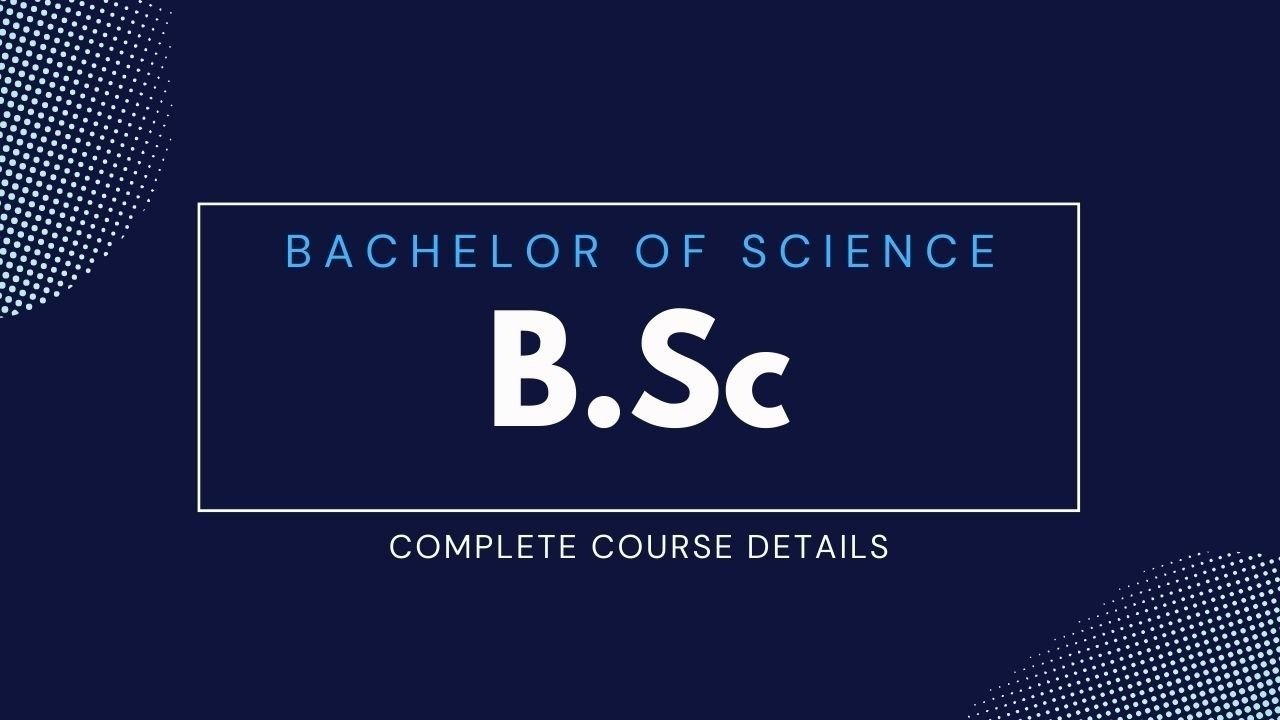Deciding what to study after high school can feel overwhelming. If you’re interested in science, a Bachelor of Science (BSc) degree could be the perfect choice to open the door to many exciting career opportunities. But what makes a BSc degree so valuable, and how can it shape your future? Let’s dive in and understand the benefits of this degree and how it can set you up for success.
What is the BSc Full Form and Why Is It Important?
Before we explore the benefits, it’s essential to know what a BSc Full Form means. It stands for Bachelor of Science. This is an undergraduate degree you earn by studying science-related subjects like biology, physics, chemistry, math, or computer science. The term “BSc” indicates that your studies focus on these areas, preparing you for various careers that require problem-solving, critical thinking, and hands-on experience.
1. Builds a Strong Science and Problem-Solving Foundation
One major advantage of a BSc degree is the in-depth knowledge it provides in scientific subjects. BSc programs don’t just teach you facts; they help you understand how things work and how to solve real-world problems. Here’s why this matters:
- Practical Learning: BSc courses often include lab sessions, experiments, and practical projects. This hands-on experience prepares you to work in real-life situations and solve actual problems.
- Critical Thinking: You learn how to analyze data, think logically, and come up with smart solutions. These skills are valuable in almost any job.
Employers love hiring people who can think critically and work through complex issues. This is why BSc graduates are often preferred in fields like technology, healthcare, and research.
2. Wide Range of Subjects and Specializations
Another reason a BSc degree is so appealing is the huge variety of subjects you can choose from. Whatever your interest, there’s likely a BSc course for you. Some of the popular options include:
- Biotechnology: If you like genetics and lab work, this could be your path to a career in research or medicine.
- Computer Science: Perfect for tech lovers who want to work in software development, artificial intelligence, or cybersecurity.
- Environmental Science: Ideal if you’re passionate about saving the planet and want to work in conservation or sustainability.
The flexibility of a BSc degree lets you study what you love and prepares you for the career you dream of, making it a perfect fit for students with specific goals.
3. Opens the Door to Higher Studies
A BSc degree also acts as a solid foundation if you want to continue studying. Many BSc graduates go on to earn a Master of Science (MSc) or even a PhD. Here’s how this helps:
- Better Career Opportunities: Advanced degrees can qualify you for higher-paying jobs and specialized roles.
- Research and Academia: If you love teaching or want to work in research, higher education is often necessary. Your BSc degree is the first step toward that goal.
Further studies give you the chance to specialize even more and become an expert in your field. It also opens doors to more rewarding career paths.
4. High Demand and Job Security
BSc graduates are in high demand across various industries. Companies look for employees with a science background to fill roles in healthcare, IT, engineering, and more. Here’s a closer look at some opportunities:
- Healthcare: Jobs like lab technicians, medical researchers, or healthcare analysts often require a BSc degree.
- Technology: BSc graduates in computer science can work as software developers, data analysts, or network engineers.
- Engineering and Manufacturing: Many engineering firms look for BSc graduates to handle technical tasks and projects.
Because science and technology are always advancing, the skills you learn in a BSc program remain relevant, giving you good job security and plenty of career choices.
5. Develops Transferable Skills
A BSc degree doesn’t just teach you about science. It also helps you build important skills that are useful in any job. Some of these include:
- Problem-Solving: You learn how to think clearly and solve problems efficiently, which is useful in almost every career.
- Communication and Teamwork: BSc programs often involve group projects and presentations, helping you learn to work well with others and express your ideas clearly.
- Time Management: Balancing classes, lab work, and exams teaches you how to manage your time effectively.
These soft skills are as important as your scientific knowledge because employers want well-rounded individuals who can contribute in many ways.
6. Pathway to Innovation and Entrepreneurship
If you dream of starting your own business or inventing something new, a BSc degree can help you achieve those goals. Science is all about innovation, and the skills you gain from a BSc course can be the foundation for your entrepreneurial dreams. Examples include:
- Tech Startups: Many successful entrepreneurs in the tech industry have a background in computer science or engineering.
- Scientific Inventions: Fields like biotechnology and environmental science offer opportunities to create products or solutions that benefit society.
Your BSc degree can equip you with the technical knowledge and problem-solving abilities needed to turn your ideas into reality.
7. Chance to Make a Difference in the World
One of the most fulfilling aspects of a BSc degree is the opportunity to contribute to society. BSc graduates often work on projects or research that can change the world for the better. Here’s how:
- Healthcare: You could be involved in discovering new treatments or improving medical technology.
- Environmental Science: You might work on projects to protect our planet and promote sustainability.
- Technology: Developing new software or technology that makes life easier for people is another way to make an impact.
Knowing that your work can help improve lives and make a difference globally adds a sense of purpose to your career.
8. Great Networking and Real-World Experience
BSc programs usually offer plenty of chances to connect with industry professionals through internships, research projects, and industry collaborations. These experiences are crucial for building your network and preparing for the workforce. Benefits include:
- Job Opportunities: Many students land jobs through internships or connections they make during their studies.
- Learning from Experts: Working alongside experienced professionals gives you valuable insights into your field.
- Hands-On Training: By facing real-world challenges during your course, you’ll be ready to tackle your future job with confidence.
These connections and experiences give you a head start when you enter the job market.
9. Competitive Salaries and Career Growth
Many BSc graduates earn competitive salaries, especially in high-demand fields. Here’s a snapshot of what you can expect:
- Technology: Jobs like software developers or data analysts come with attractive starting pay.
- Healthcare: Positions in medical research or lab work also offer good compensation.
- Engineering: BSc graduates working in engineering often enjoy financial stability and growth opportunities.
Good salary packages mean you can build a secure and comfortable life, making your investment in a BSc degree well worth it.
10. Personal Development and Lifelong Learning
Lastly, a BSc degree helps you grow personally, not just professionally. The challenges you face and the knowledge you gain can transform you into a more confident and adaptable person. Here’s how:
- Lifelong Learning: Science keeps changing, and a BSc degree teaches you to keep learning and stay updated.
- Leadership Skills: Managing projects and working in teams help you develop leadership qualities.
- Confidence: Overcoming tough academic challenges gives you the confidence to face any obstacles in your career.
The personal growth you experience during your BSc journey can be just as rewarding as the career opportunities.
Conclusion
Choosing a BSc degree, or BSc Full Form, could be one of the best decisions you make for your future. It’s more than just a qualification; it’s a pathway to a career full of opportunities, growth, and impact. Whether you want to work in technology, healthcare, research, or even start your own business, a BSc degree equips you with the skills to succeed.
If you’re passionate about science and love solving problems, a BSc degree might be your perfect match. Think about what interests you most and how you want to make a difference, and let your BSc journey begin.
FAQs
1. What is the BSc Full Form?
The BSc Full Form is Bachelor of Science. It’s an undergraduate degree focused on science subjects like physics, biology, chemistry, math, and computer science.
2. What are the career options after a BSc degree?
Career options include roles in healthcare, IT, research, environmental science, data analysis, and engineering. You can work as a lab technician, software developer, data analyst, or even start your own tech company.
3. Can I pursue higher studies after completing a BSc?
Yes, many students go on to pursue an MSc or a PhD. Higher studies can lead to better job opportunities and the chance to specialize in a specific area of interest.
4. Are BSc degrees in high demand?
Absolutely! BSc graduates are needed in various fields, including technology, healthcare, and research. Their problem-solving and analytical skills make them highly employable.
5. Does a BSc degree offer good salary prospects?
Yes, BSc graduates often earn competitive salaries, especially in high-demand fields like tech and healthcare. As you gain experience and skills, your earning potential increases significantly.



